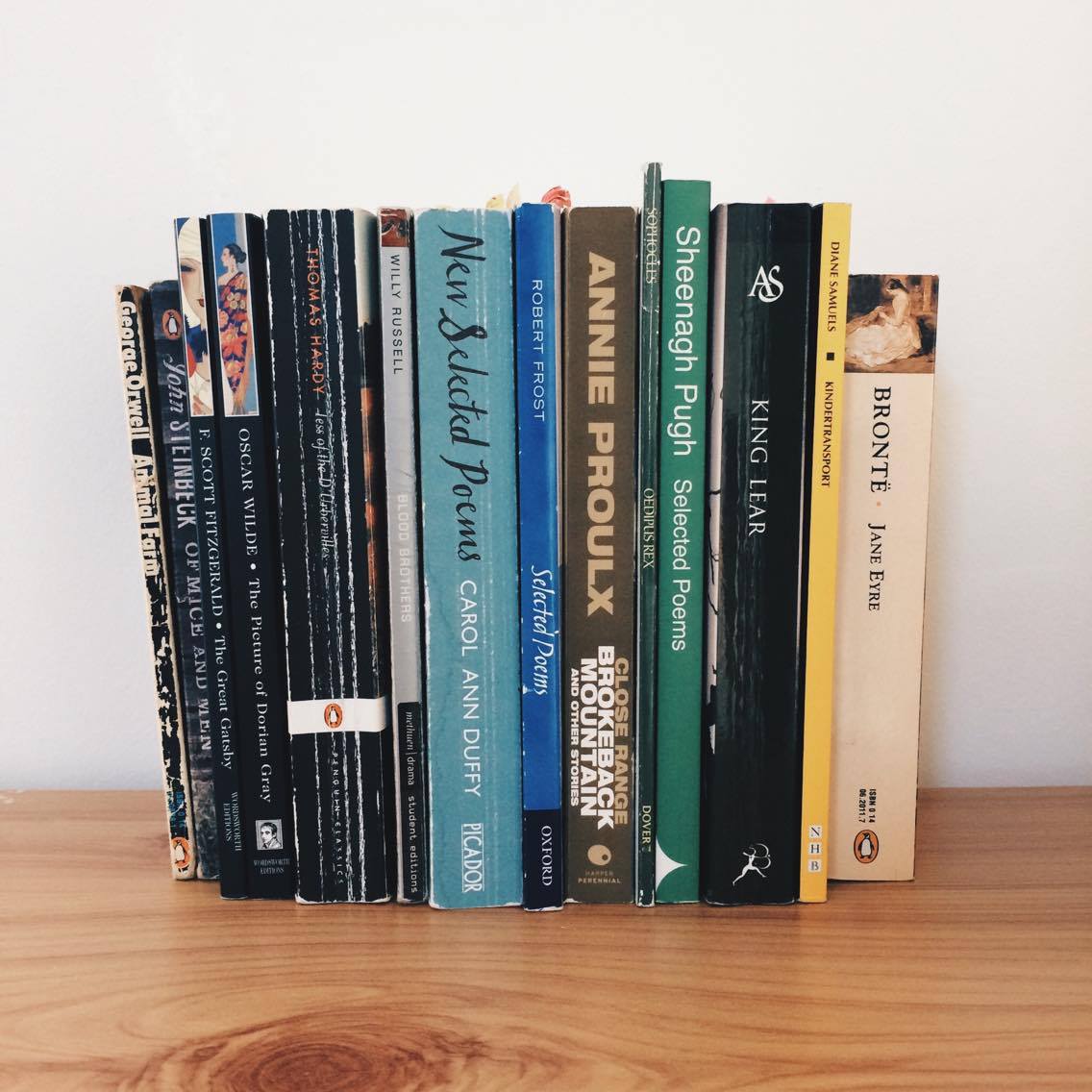Although I used to LOVE reading and studying literature, I fell out of love with reading. That was because of situations and lecturer's, which shows how fragile students are to the way their lecturers/teachers teach. Fast forward 3/4years and I'm enjoying reading again. Hurrah.
I'm slowly making my way through books I read in 'high school' (secondary) and college (sixth form) and thought it would be nice to make a collection, while I still remember, of the books I read while in education. I do still read books in university, but they're on the boring side and are textbooks that way me down to and fro from the library.
GCSE Literature:
Blood Brother by Willy Russell
A play about two brothers. Separated at birth. And mixed up in superstition. They meet again when they're older and make a pact to be 'blood brothers'. The play follows their life and death together.
Lord of the Flies by William Golding
A group of private school boys end up alone on a deserted island. It follows the story of them creating leaders, wars, and fighting to survive. A book that explores the survival of mankind and our animalistic instincts.
Of Mice and Men by John Steinbeck
Two brothers are working their way through the great depression in the America, following their time together on one plantation.
Mid-Summer Nights Dream by William Shakespeare
A play about four interconnecting plots that are all connected by the celebration of a wedding. It's set in a wood land, the realm of Fairyland, under the moon light.
Poetry was a selection chosen by the examination board from a large selection of authors.
Books I've read of the syllabus after my GCSEs:
Jane Eyre by Charlotte Brönte
Following the life of Jane Eyre, from living with her Aunt & Cousins, going onto school, learning to be a teacher, falling in love, running away, and coming back again.
Animal Farm by George Orwell
A novella that, Orwell says, discusses the lead up to the Russain Revolution in 1917. A revolution of a farm, from being run by a man and taken over by the animals. How a revolution can take place for the better and the worse.
AS/A2 Literature:
Tess of the D'Urbervilles by Thomas Hardy
Following Tess' life from poverty, finding ancestors who might be wealthy, motherhood, love, and showing the juxtaposition of female & male rights during the 1800s.
The Great Gatsby by F.Scott Fitzgerald
A story that revolves around the young and mysterious millionaire Jay Gatsby and his obsession and love for the beautiful Daisy Buchanan.
King Lear by William Shakespeare
Following King Lear's descent into madness after he splits up his kingdom to two of his three daughters, based upon their flattery to him. After the kingdom is split a tragic sequence of consequences happen, creating a civil war in his kingdom.
Brokeback Mountain by Annie Proulx
Two young men, Ennis and Jack, are hired to look after sheep for the summer. They form an intense emotional and sexual attachment, but part ways at the end of the summer. Over the following twenty years, their separate lives play out with marriage, children, jobs and reunite throughout for remote camping trips.
Kindertransport by Diane Samuels
A play about the kindertransport that got children to safety in Germany at the start of WW2. Examining the life, during and after world war II and afterward, of the Kindertransport children. It is based on many real kindertransport stories.
Oedipus Rex by Sophocles
While Oedipus is young, his parents receive a prophecy, that he will become King, kill his father, and marry his mother. The King orders for Oedipus to killed, but he is instead given to a shepherd who returns the child to his King. The King takes Oedipus in, looking after him as if he is his own. The play then follows Oedipus' life and fulfilling the prophecy that his father had tried to prevent.
The Picture of Dorian Grey by Oscar Wilde
Dorian Gray is the subject of an oil painting by Basil Hallward, a painter who is impressed and infatuated by Dorian's beauty. Through Basil, Dorian meets Lord Henry Wotton, and is soon obsessed by the aristocrat's hedonistic worldview, 'that beauty and sensual fulfillment are the only things worth pursuing in life'. Newly understanding that his beauty will fade. Dorian has a desire to sell his soul, to ensure that the painting will age and fade, instead of himself. The wish is granted. Dorian goes onto live a free and varied life, while his portrait ages and records every sin.
Poetry I studied was by Sheenagh Pugh, Robert Frost, and Carol Ann Duffy.
I've attempted to write my own synopsizes about the books without giving too much away about the stories. I recommend that you go online and read what is written about these books for more accurate and articulate synopsizes.
- K.B








No comments